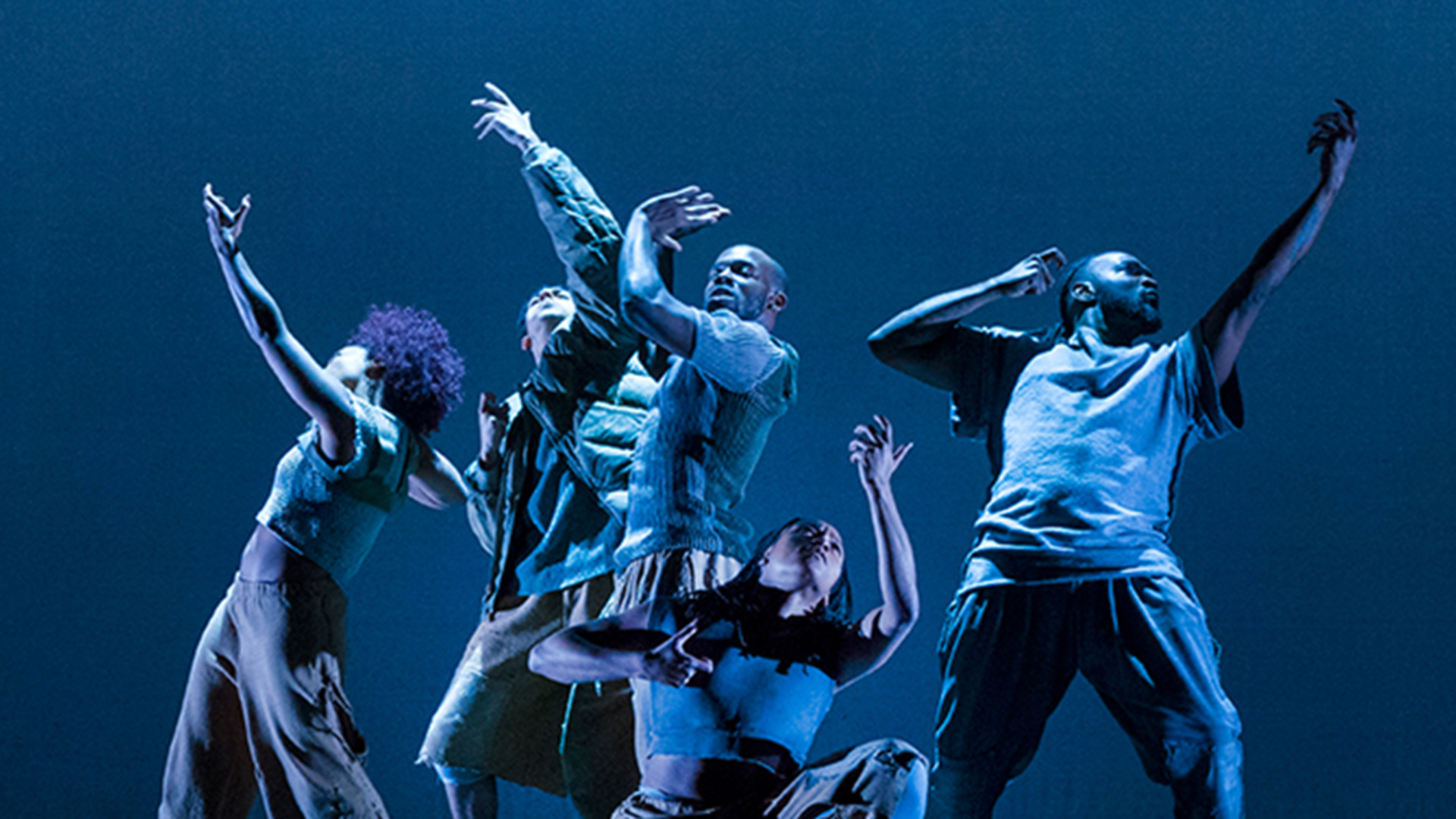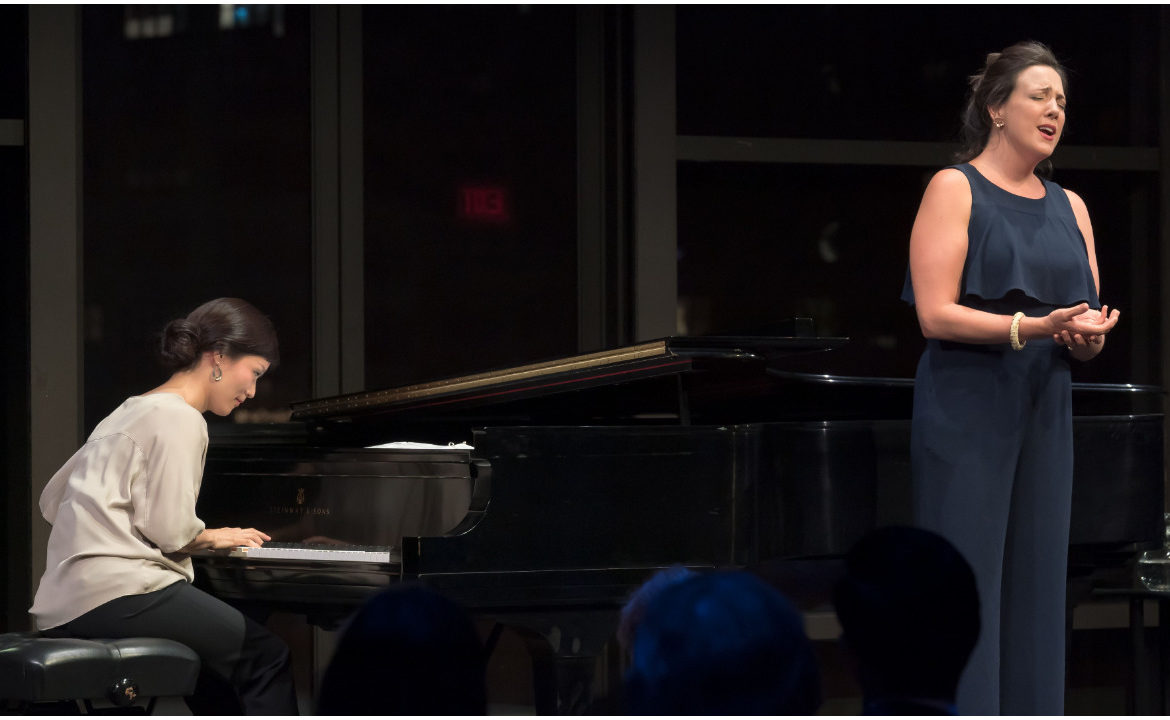VIEWPOINTS – Lincoln Center’s MOSTLY MOZART FESTIVAL necessarily evolves into an eclectic festival of riches
- By drediman
- August 11, 2019
- No Comments
This weekend marks the conclusion of this year’s Mostly Mozart Festival, courtesy of Lincoln Center. With the demise of the Lincoln Center Festival a few years ago, the institution’s other performing arts festivals (notably this one and the White Light Festival in the fall) have absorbed the overflow, resulting in a necessary evolution in programming. Indeed, Mostly Mozart 2019 represents a richer and more eclectic tapestry of performances across genres – including concerts, opera, late night soirees, theater, dance, and film – as exemplified by my experience over the past week or so.

Boy Blue perform “Blak Whyte Gray” at the Gerald W. Lynch Theater, courtesy of Lincoln Center’s Mostly Mozart Festival.
This past week, I had the chance to catch two enticing works of dance-theater – the return engagement of Boy Blue’s Blak Whyte Gray (HIGHLY RECOMMENDED) (I had missed its previous appearance in New York last year) and Yang Liping’s Under Siege (RECOMMENDED). Based out of London, Boy Blue uses a heightened hip hop dance vocabulary to convey atmosphere and suggestive narratives. Blak Whyte Gray, an intentionally vague coming-of-age story within an African community under duress, was a triumphant display of virtuosic technique, theatrical flair, and impeccable style. Indeed, it’s been a while since I’ve been this excited by a work of new dance – concept, choreography, dance ability, and design successfully came together in a way they rarely do in performance. Less wholly riveting but undeniably visually ravishing was Under Siege, Ms. Liping’s stylized dance-theater retelling of events in ancient Chinese history. In summary, the production’s overall construction was simplistically episodic and its pacing too lax. Nonetheless, Tim Yip’s surreal design elements were breathtaking, culminating in a stunning, hallucinatory final sequence (involving a sea of scarlet feathers) during which Ms. Liping’s ambitious modern dance/martial arts/acrobatics/classical Chinese opera hybrid finally took flight, but perhaps a little too late.

Ivan Fischer conducts the Budapest Festival Orchestra at the David Geffen Hall, courtesy of Lincoln Center’s Mostly Mozart Festival.
And then of course, there’s the man himself, after whom the summer festival was named. Over the course of the past week or so, I had the pleasure of hearing the Budapest Festival Orchestra (HIGHLY RECOMMENDED) and the Mostly Mozart Festival Orchestra (RECOMMENDED) perform inspired concerts featuring, respectively, two Mozart symphonies. It was interesting comparing the two orchestras side-by-side. Both excelled, but for different reasons. The visiting Budapest Festival Orchestra, vividly led by brilliant maestro Ivan Fischer, put forth a playful, utterly human rendition of the “Jupiter” symphony. The Mostly Mozart Festival Orchestra, on the other hand – as conducted by festival music director Louis Langrée (who just extended his contract in the role through 2023) – was balanced and controlled in its rendition of the “Prague” symphony. Did I have a preference between the two, you may be wondering? Personally, I was moved more by Mr. Fischer’s exuberant, whole-hearted conducting, but both approaches were totally legit. The two orchestras’ programs also included non-Mozart pieces. The Budapest forces richly and elegantly played a few Handel opera arias (featuring lively, lovely soprano Jeanine De Bique) and Haydn’s Symphony No. 88. The night I was in attendance, the Mostly Mozart Festival Orchestra’s trump card was superstar guest violinist Joshua Bell, who ripped into Dvorak’s violin concerto with both discipline and impressive abandon. The orchestra also played an unusually passionate account of Kodály’s “Dances of Galánta”.

Myra Huang and Susanna Phillips perform an intimate, late night set at the Stanley H. Kaplan Penthouse, courtesy of Lincoln Center’s Mostly Mozart Festival.
Then there’s the festival’s “A Little Night Music” programming (RECOMMENDED), the numerous one-off late-night concerts held at the intimate Stanley H. Kaplan Penthouse just a short stroll from the main Lincoln Center campus. These smartly-curated hour-long, candlelit concerts were a sort of a palette cleanser, whether you’re coming down from a high post-“mainstage” Mostly Mozart concert at the David Geffen Hall or stopping by after a long day at work. Complete with a free glass of wine, inviting acoustics, and a sweeping view of the New York skyline, these laid back yet classy soirees were a perfect way to cap off the day. These past weeks, I attended three bills – American soprano Susanna Phillips and pianist Myra Huang’s charming, informative, and heartfelt ode to the works of a trio of largely unsung female composers (Clara Schumann, Alma Mahler, and Fanny Hense); pianist Martin Helmchen’s unlikely but soulful exploration of sacred music for piano (works by Bach, Liszt, and Franck were featured); and the eclectic and consummately entertaining piano four hands program from the dynamic Dutch duo of Lucas and Arthur Jussen. All three were a joy to watch, particularly as enthusiastically narrated and hosted by the talented musicians themselves.
MOSTLY MOZART FESTIVAL
Classical Music / Theater / Dance / Film
Lincoln Center / Various venues
Closed

 Copyright © 2025
Copyright © 2025
Leave a Reply